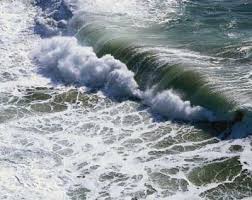current
英 [ˈkʌr.ənt]
美 [ˈkɝː.ənt]
- adj. 现在的;流通的,通用的;最近的;草写的
- n. (水,气,电)流;趋势;涌流
- n. (Current)人名;(英)柯伦特
使用频率:

记忆方法
将“current”与“curr”相似的水流(current)的概念相联系,想象一条持续流动的河流,暗示“current”代表的是当前或持续的状态。
以上内容由AI生成, 仅供参考和借鉴
中文词源
current 当前的,流通的
来自PIE*kers, 跑,词源同car,course.
英语词源
- current
-
current: [13] Current literally means ‘running’. It comes from Old French corant, the present participle of courre ‘run’, which in turn was descended from Latin currere ‘run’. This has been traced back to a prehistoric root denoting ‘swift movement’, which probably also produced car, career, carry, and charge. The Latin verb itself has a wide range of descendants in English, from the obvious courier [16] to the more heavily disguised corridor [16] (originally literally ‘a run’), occur and succour.
For the English offspring of its past participle cursus see COURSE. The sense ‘of the present time’ (first recorded in the 17th century) comes from the notion of ‘running in time’ or ‘being in progress’.
=> car, carry, charge, corridor, courier, course, occur, succour - current (adj.)
- c. 1300, "running, flowing," from Old French corant "running, lively, eager, swift," present participle of corre "to run," from Latin currere "to run, move quickly" (of persons or things), from PIE *kers- "to run" (cognates: Greek -khouros "running," Lithuanian karsiu "go quickly," Old Norse horskr "swift," Old Irish and Middle Welsh carr "cart, wagon," Breton karr "chariot," Welsh carrog "torrent"). Meaning "prevalent, generally accepted" is from 1560s.
- current (n.)
- late 14c., from Middle French corant (Modern French courant), from Old French corant (see current (adj.)). Applied 1747 to the flow of electrical force.
权威例句
- 1. The tidal stream or current gradually decreases in the shallows.
- 浅滩上的潮水逐渐退去。
- 2. He must sell the house for the current market value.
- 他必须以目前的市价出售这座房子。
- 3. Current employment laws will be changed to reward effort and punish laziness.
- 现行雇佣法要变,要奖勤罚懒。
- 4. The current sole superpower is far from being a disinterested observer.
- 当前唯一的超级大国远不是一个公正的旁观者。
- 5. Stimulate the site of greatest pain with a small negative current.
- 以微弱负电流刺激疼得最厉害的部位。
